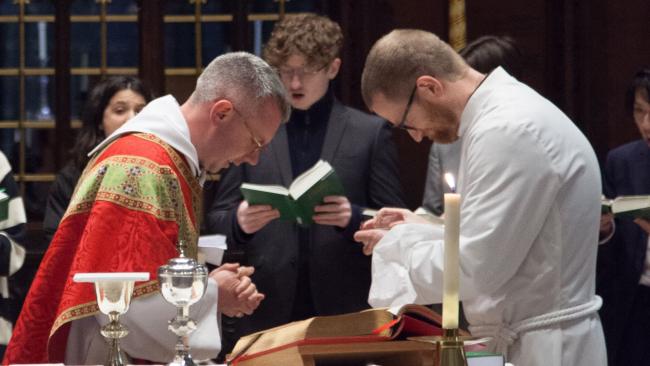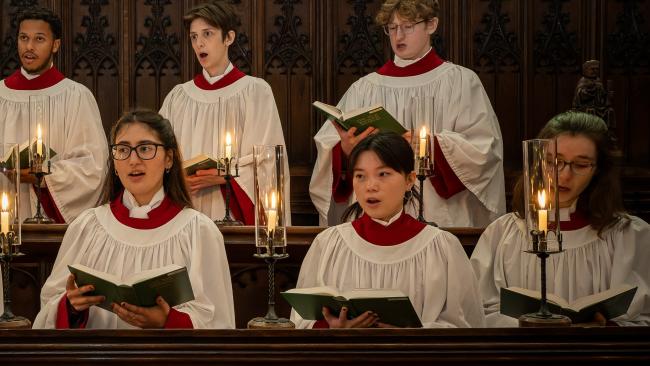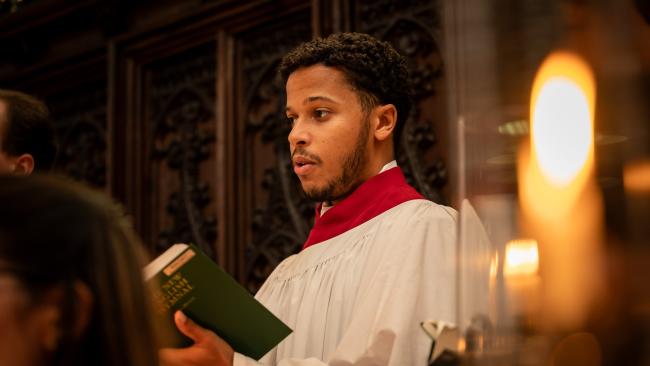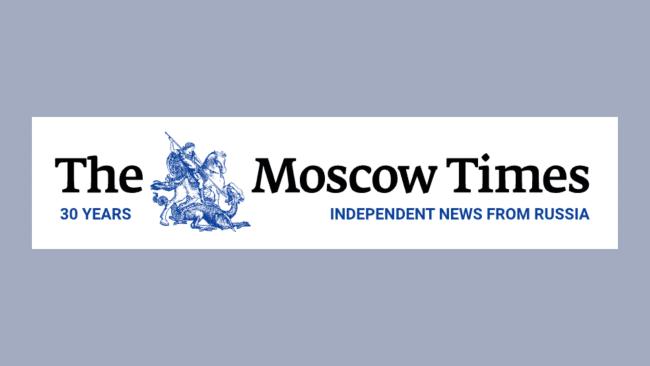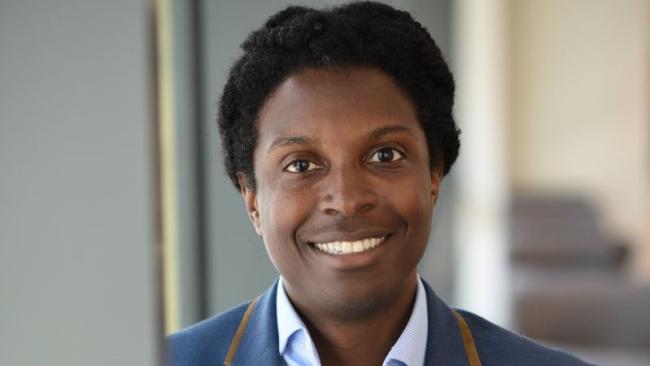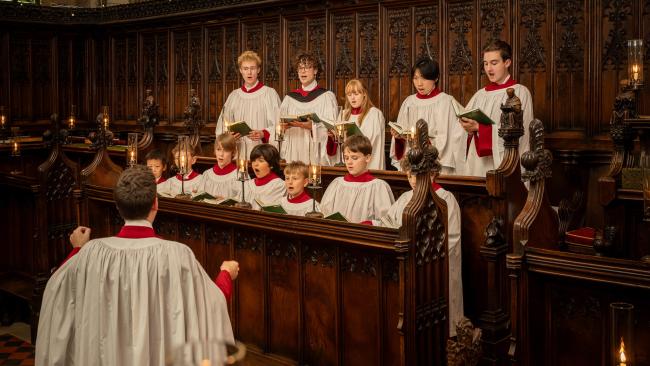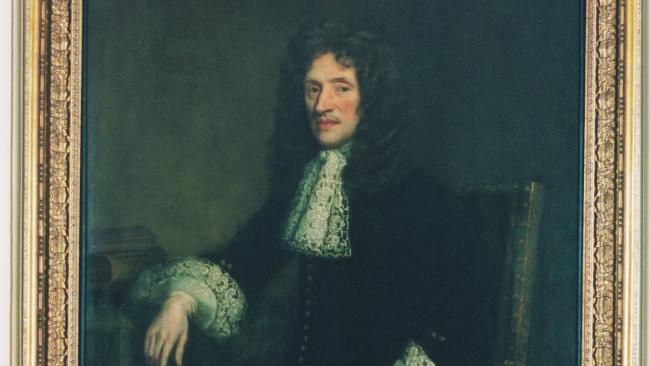
Tobias Rustat
Tobias Rustat (1608-1694) was one of Jesus College’s most significant donors.
In 1671 Rustat paid £2097 4s for the fee-farm of Waterbeach and Denny in Cambridgeshire, which produced an annual income of £134 3s 5d. He transferred it to Jesus College in July 1671 to establish scholarships at Jesus for the sons of deceased clergy of the Church of England.
Rustat’s generosity to Jesus College sat alongside his involvement in the transatlantic slave trade, which spanned more than 30 years.
Rustat had financial and other involvement in two companies that traded enslaved people: the Company of Royal Adventurers trading to Africa (RA) and the Royal African Company (RAC). His involvement in these companies lasted from 1662 to his death in 1694, including at the time of his donation to the College in 1671. He invested at least £760 (the equivalent of £112,900 today) in the RA and £400 (£60,000 today) in the RAC. Rustat’s involvement in the slave trade has never been in question, as confirmed by historical evidence.
The historian William Pettigrew describes the activities of the RAC clearly: "The Royal African Company shipped more enslaved African women, men, and children to the Americas than any other single institution during the entire period of the transatlantic slave trade. From its foundation in 1672 to the early 1720s, the African Company transported close to 150,000 enslaved Africans, mostly to the British Caribbean." This was a brutal and sustained trade in human life that exploited thousands of people: investors in the RA and RAC were fully aware of its activities and intended to profit from its exploitation.
Jesus College acknowledges that involvement in enslavement, trafficking and exploitation is unambiguously wrong. Following the recommendations of our Legacy of Slavery Working Party (LSWP), the College decided to critically address Tobias Rustat's role in our history in various ways. Further details are available in the Legacy of Slavery Working Party timeline.
Life and career
Tobias Rustat was the son of Robert Rustat (d.1637), who had studied at Jesus in the 1580s and succeeded his own father as vicar of Barrow-on-Soar in Leicestershire.
Rustat was first apprenticed to a barber surgeon and then joined the household of Viscount Feilding, a Leicestershire landowner, spending 1634-39 in Venice while Feilding was English ambassador there. After his return to England, Rustat left Fielding’s service for that of his relative, the young Duke of Buckingham. He joined the royal household in the early 1640s and remained devoted to Prince Charles, later Charles II, for the rest of his life. During the Civil Wars Rustat carried secret correspondence between the King in England and the Queen in Paris. He joined Charles II in exile and soon became one of his favourite servants.
His loyal service was well rewarded on the King’s return to England. Appointed Yeoman of the Robes in 1659 and Keeper of Hampton Court in 1660, much of Rustat’s personal wealth came from his career as a courtier. At this time, the line between public service and private enterprise was blurry, and courtiers holding office in the royal household profited substantially. Rustat lent money to other courtiers and pursued other financial opportunities through his court connections.
Rustat remained Yeoman of the Robes until the death of Charles II in 1685 and retained his Hampton Court appointment until the arrival of William and Mary in 1689.
Donations
Rustat’s gift to Jesus in 1671 was part of a broader project of philanthropy that began in the 1660s. Between 1665 and 1686 Rustat gave away more than £11,000 (at least £1.8 million in modern terms). He contributed to the rebuilding of St Paul’s Cathedral, to Chelsea Hospital, and established funds for clergy widows and for poor clergy in Leicestershire. In 1667 he gave Cambridge University Library its first endowment, to buy “the choicest and most useful” books.
This charitable giving had a political and religious agenda: as an ardent royalist during the Civil Wars, Rustat intended his gifts primarily to support the established Church and the universities (which, like most early modern people, he would have understood as politicised, religious institutions), and to support clergy and their families who had suffered as a result of the religious and political upheavals of the 1650s.
Involvement in Slavery
In the early 1660s Rustat sought to further increase his wealth through investments in a series of trading companies: the Company of Royal Adventurers of England Trading into Africa, commonly called the Royal African Company, which was chartered in 1663 and reincorporated in 1672 as The Royal African Company (RAC). His name appears on the charter of both companies; he was also involved in another trading company, the Gambia Adventurers, into the 1680s.
Rustat also took a role in running both the RA and the RAC. He was elected for a yearly term as an Assistant of the RA (the rough equivalent of a Director) in 1664 and annually from 1667 to 1671. He was also elected as an Assistant of the RAC in 1676, 1679, and 1680. Rustat was a relatively active investor who attended meetings of stock-holders to follow the progress of his investment, although his direct involvement in the day-to-day management of both companies was not great.
Rustat’s investments in the RA made a loss when the company failed in the early 1670s. The RAC was not consistently profitable, but Rustat received dividends on his investment and small payments related to his service as an Assistant. He also profited when he sold his shares in 1691. He would have gained other social, political and financial benefits from membership in both companies.
Rustat thus had financial and other involvement in two slave trading companies over a substantial period, including at the time when he donated to Jesus College.






